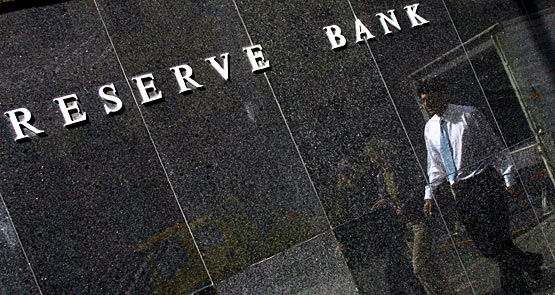
Another night of unwanted lows and highs. Overnight the following occurred: European stock markets fell to their lowest levels since 2013; US bond yields dropped to their lowest for year (1.53%); UK 10-year bond yields hit an all-time low of 1.22%; the US dollar hit a year low against the yen, despite media reports of intervention by the Bank of Japan to halt the rise; gold soared to its highest level in a year — up more than US$53 an ounce; and oil slumped to a 13-year low, despite a Wall Street Journal story suggesting that OPEC was looking at production cuts and the boss of Total predicting a rise in oil prices by the end of 2016 (that’s called talking up your oil wells). And topping it all off, Sweden’s central bank, the Riksbank, stunned markets by boosting the rate on its key interest rates to minus 0.50% (down by 0.15%). — Glenn Dyer
Monday’s conjunction. On Monday at 12.30pm, the world’s tottering financial markets will pause with bated breath as China’s nervy sharemarkets reopen for trading after the week long New Year holiday, and then the trade data for January is released half an hour later. It could be an unholy conjunction of concern, volatility and just plain panic, or it could be a bit of a fizzer. But the way markets have been sliding and turning this week, and given all the fears about the health of China’s sluggish economy, you can bet the bulls won’t be in the field — the bears will be rampant and anything could happen. Hong Kong reopened for trading yesterday after three days off, and the Hang Seng promptly slid more than 3.8%. That is a flavour of what could lie ahead on Monday afternoon in Shanghai. — Glenn Dyer
RBA’s puzzle. The Reserve Bank is watching global markets and what is going on in China very closely, as governor Glenn Stevens told the House of Reps economic committee this morning:
“One key question will be whether the recent financial turbulence itself will have a material negative effect on aggregate demand — in Australia or abroad. I don’t expect that we will be able to answer that question for a little while yet.
“That’s why financial markets are surging and sliding — everyone is worried, and there are no clear answers and won’t be for months …
“Another question is what the recent unexpected strength in the labour market means for the outlook. If it turns out that the strength is just temporary, then the outlook is still for moderate growth, but no near-term acceleration. If, on the other hand, recent trends were to continue, the income gains coming from higher employment may start to feed into stronger demand growth, which would probably lead in due course to higher levels of investment.”
Just as the bank explained in the first monetary policy statement for 2016 a week ago, the strong performance of the labour market has helped cushion the transition of the economy away from the resources boom, in conjunction with the weaker dollar and the housing boom. That has helped maintain growth, incomes, boosted productivity and partially offset the wrenching slide in our terms of trade. In other words, the very labour market claimed to be inflexible and in need of reform and cuts in wages and conditions by a succession of conservative governments and big business. The urgers and rent-seekers have been made to look foolish and out of touch by the unions and millions of employers, contractors and others in the labour market. But there was also contained in Stevens’ comments this morning a sense that he and the RBA are fearful this could all turn out to be a horrible illusion — if that’s the case, then we are all you know what. — Glenn Dyer







Crikey is committed to hosting lively discussions. Help us keep the conversation useful, interesting and welcoming. We aim to publish comments quickly in the interest of promoting robust conversation, but we’re a small team and we deploy filters to protect against legal risk. Occasionally your comment may be held up while we review, but we’re working as fast as we can to keep the conversation rolling.
The Crikey comment section is members-only content. Please subscribe to leave a comment.
The Crikey comment section is members-only content. Please login to leave a comment.